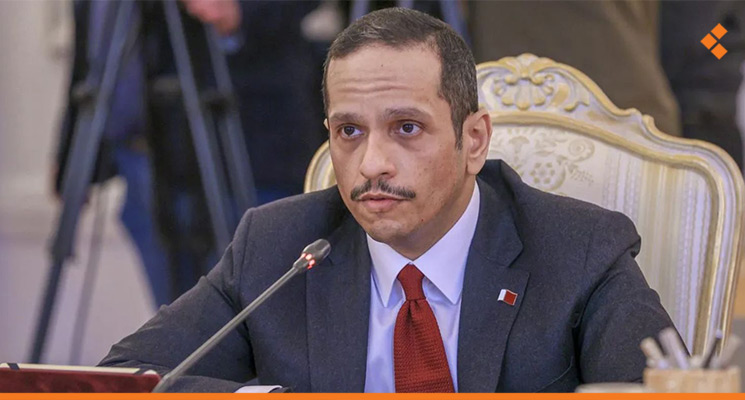The Jeddah consultative meeting, which took place on Saturday between the foreign ministers of the six Gulf Cooperation Council (GCC) countries, as well as Egypt, Iraq, and Jordan, ended without making a definitive decision on whether to restore Syria’s seat in the Arab League.
According to a report published on Saturday by the British newspaper “Financial Times,” there is a significant disagreement among Arab nations regarding Saudi Arabia’s recent efforts to reconcile with Syria. The details of these efforts became apparent after the meeting of Arab foreign ministers in Jeddah to discuss the possibility of Syria returning to the Arab League.
It is evident that Qatar was one of the most resolute countries in its objection to Damascus’ re-entry into its Arab surroundings, despite the fact that Syria has made significant strides in strengthening its bilateral relations with several Arab countries, including its recent rapprochement with Saudi Arabia. This rapprochement was marked by the visit of Foreign Minister Faisal al-Mekdad to Jeddah, at the invitation of his Saudi counterpart, Faisal bin Farhan.
In a statement issued by the Qatari Foreign Ministry, they expressed that “consultations and opinions were exchanged regarding efforts to achieve a political resolution to the Syrian crisis that puts an end to the suffering of the Syrian people, resolves all its repercussions, and maintains the unity of Syrian territory.”
Dr. Ismail Sabri Makled, a professor of political science and international relations in Cairo, criticized Qatar’s strong opposition to Syria’s readmission to the Arab League. He noted that Qatar had played the most significant role in suspending Syria’s membership since 2011, according to the online newspaper Rai Al-Youm.
Makled added that it was expected that Qatar would change its stance at the conference held in Jeddah to discuss the issue, and that it would follow the majority’s decision and align with the general Arab trend in support of Syria’s return to the League. After years of boycott and exclusion, the current Arab situation is unbearable, and it is necessary to restore Syria’s membership in the League.
The political science professor pointed out that the Prime Minister of Qatar defended his country’s decision to oppose Syria’s readmission to the Arab League, citing the continued validity of the reasons that led to Syria’s suspension in the first place. He noted that the Prime Minister was likely referring to Syria’s position on the political opposition, which necessitated the suspension.
The professor further noted that Qatar’s position on Syria’s return to the Arab League is in line with that of the United States, and that Qatar provides political cover for this position from a Gulf Arab state, even though it differs from the positions of other Gulf and Arab nations.
He questioned Qatar’s motives for opposing Syria’s readmission to the Arab League, asking whether the country is more concerned about the rights and freedoms of the Syrian people than the Syrians themselves. He wondered why Qatar would be against Syria’s return to its Arab roots, which could offer hope to the people of Syria after years of devastation and exclusion from their Arab neighbours.
Makled argued that it is neither reasonable nor fair for one Arab country like Qatar to block Syria’s return to the Arab League, especially when the move could help to unite the Arab world and bring an end to a tragic chapter in Arab politics characterized by planners, instigators, supporters, implementers, and collaborators.
He emphasized that it is in the best interest of the Arab world as a whole to allow Syria to rejoin the Arab League. He noted that Qatar has the right to decide whether or not to establish full diplomatic relations with Syria based on its own convictions, and no one can force it to do so. This is a sovereign right that belongs to Qatar alone, and no one can take that away from them. Thus, Qatar can balance supporting Syria’s return to the Arab League and determining its official position on the current situation in Syria.
This article was translated and edited by The Syrian Observer. The Syrian Observer has not verified the content of this story. Responsibility for the information and views set out in this article lies entirely with the author.


